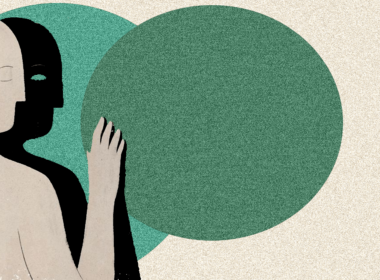Rythm is a platform that is on a mission to strengthen the vulva-mind-spirit connection. We want to normalize a world where humans with vulvas have a better connection with their bodies, parts, and partners. For our blog series “Humans of Rythm,” we interview founders, thought leaders, and experts in the sexual wellness space and share their responses with you.
Dr. Tammy Nelson is a Ph.D. Board Certified Sexologist, Licensed Relationship therapist, and a TEDx speaker. She is the author of Open Monogamy: A Guide to Co-Creating Your Ideal Relationship Agreement, Integrative Sex and Couples Therapy, When You’re the One Who Cheats, The New Monogamy, Getting the Sex You Want, and What’s Eating You. She has been quoted as an expert in The New York Times, NY Times Magazine, Wall Street Journal, Rolling Stone Magazine, Washington Post, CNN, The Sun, and Time Magazine. She is also the Director of the Integrative Sex Therapy Institute, the host of the podcast The Trouble with Sex, and has also amassed hundreds of thousands of social media fans and followers. We are also incredibly lucky and proud to have Dr. Nelson on Rythm’s Clinical Board of Advisors.
Keep reading for words of wisdom from Dr. Tammy Nelson, our lovely Leo, regarding everything from her professional career to what helps her find her rythm.
Where were you born, where did you grow up, and how was sex (the act) perceived in your culture/household?
I was born in Los Angeles and grew up on the East Coast. My mother told me every problem she ever had was because of sex. That’s clearly why I became a sex therapist. I have spent my life convincing people that sex doesn’t have to be the problem, it can be the solution.
What’s a funny or embarrassing memory you have from when learning about or experiencing sex?
I started having sex early, too young to know what I was doing or why I was doing it. There was no love involved and I often look back on that time in my life with some regret. I realize now that I was a very sexual person in my teens and twenties and it was important to me, but I didn’t give it, or me, the respect it deserved. Back then it was the 70s and early 80s and it was all ‘sex, drugs, and rock and roll’ and sex was very recreational. It wasn’t until I had my first serious relationship that I was able to explore sex with someone who I loved and who loved me… now that was fun.
Have you ever walked in on a family member ‘doing the deed’? Is there a funny, or interesting story you can share with us about your experience? How old were you when this happened?
I never walked in on someone, although I have four children. For most of their teenage years, I was afraid to go into their rooms and gave them a lot of privacy. Although if they had dates over I made them leave their door open (at least until they were 16). I was a surprisingly strict mom, but I also had books about sex all over the house. My kids were slightly embarrassed to tell people their mom was a sex therapist… until they got older and then they would brag about me and tell everyone I wrote the book “Getting The Sex You Want.” My daughter asked me to send her a few copies to college for her roommates to keep in their dorm room.
Today, they are all grown, and are slightly confused about my latest book, ‘Open Monogamy.’ They are not sure if they should ask me if my husband and I are in an open relationship. Now they are giving me the privacy I gave them all those years ago.
What is your profession and why did you choose to pursue it?
I am a sex and couples’ therapist because I believe that the way to bring peace to the world is by helping couples heal their relationships at home first. When couples are having a passionate, alive sex life, they have more passion and love to bring to each other, to their families, and to the world.
What about your industry surprised you when you were first getting started? What is something about your industry that might surprise those who are not in your line of work?
I trained as a therapist working with relationships for many years, and none of my training programs ever talked about sex. I was amazed that the psychotherapy world would avoid the conversation and be so prudish and biased about sexuality when we are focusing on connection and attachment. I have made it part of my life’s mission to train therapists in the integrative method of sex and couples therapy so that all therapists feel comfortable talking about sex with their clients. Most people don’t know that even medical doctors have about 15 minutes of training in med school on how to talk to their clients about sexuality.
What do you wish your caregiver(s) or guardian(s) had told you about pleasure, relationships, and the female body when you were growing up?
I wish my mother had been more secure in her body when I was growing up. Mothers have a responsibility to pass down a positive body image to their children, to help them accept and love their bodies just the way they are. My mother grew up at a time when eating cottage cheese and weighing herself constantly was normal. I was put on Weight Watchers when I was eight years old and have been yo-yo dieting ever since. It has taken me fifty years to get off that negative cycle and accept my body for what it is, and love the shape I’m in.
What was something you were surprised to learn about your body, relationship with self, and relationship with your vulva in the past decade? How has it changed?
Having gone through menopause myself, I am shocked that the narrative in our culture is that after menopause, sex stops, gets painful, and women dry up/shrivel after their periods stop. Since menopause, I have been nothing but grateful – I no longer have to worry about cramps, PMS, or tampons – and I have better sex than I have ever had. I am now multi-orgasmic, know my body, and how to use it like never before. I make no apologies and don’t ever settle for mediocre sex. I take a small amount of hormone replacement therapy (HRT), which is not cancer-causing, and am super happy with my vagina. All of the myths perpetuated in the media about older women, HRT, and dried-up vulvas are wrong. Don’t push post-menopausal women too fast into the ‘crone’ stage of life. Trust me, sex gets better in your 50s. And now I am very much looking forward to my 60s!
When do you feel the most empowered and alive?
When I am speaking on a stage, teaching a class, dancing with my husband, or out in nature… and of course, when I’m having great sex.
What is something non-sexual that brings you immense pleasure?
I love being outside, doing yoga, taking walks, and being with my children. I also adore my husband and could spend hours alone with him just doing nothing.
What can a partner do to turn you on in and out of the bedroom?
I really like intense and interesting conversations about sex. Talking about fantasies and what we each like is a great turn-on for me, both in and out of the bedroom.
How do you find your rythm in connecting with your body and self? What wisdom can you impart on us regarding lessons you’ve learned along the way to finding your rythm?
Listen to your own inner voice, spend time alone, trust your fantasies, and prioritize your pleasure. These are all important ways to ‘find your rythm.’
What is your favorite song you are jamming out to these days?
I am loving Lizzo right now.
What’s your go-to song to get in the mood? Or, what song helps you find your ‘sensual rythm’?
I like lots of things. XX, Beyonce, Rodrigo y Gabriela…
What is your favorite sexual wellness product that you can’t live without?
Lube is a definite necessity. I use Good Clean Love or Uberlube.
You can find Dr. Tammy Nelson on the following platforms:
Website: drtammynelson.com
Instagram: @doctor_tammynelson, @thetroublewithsex
Twitter: @drtammynelson
Tik Tok: @askdrtammynelson
Edited by:
Gillian ‘Gigi’ Singer, MPH
American Board Certified Sexologist, Sexuality Educator, and Sex Ed Content Specialist







